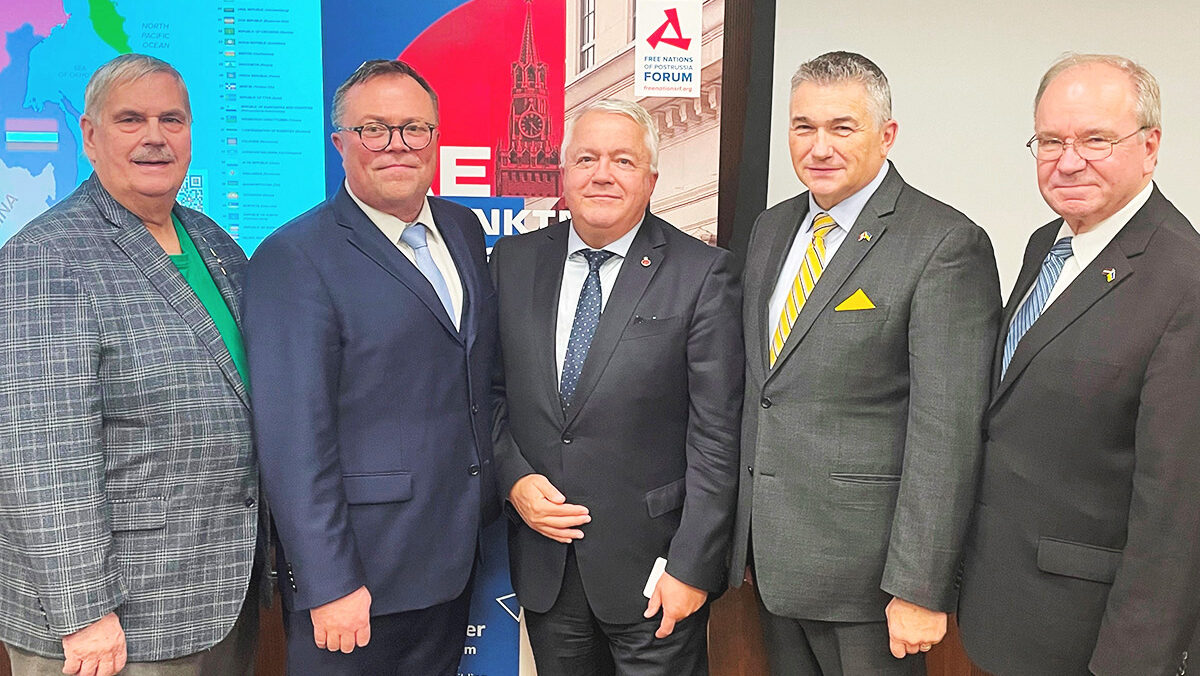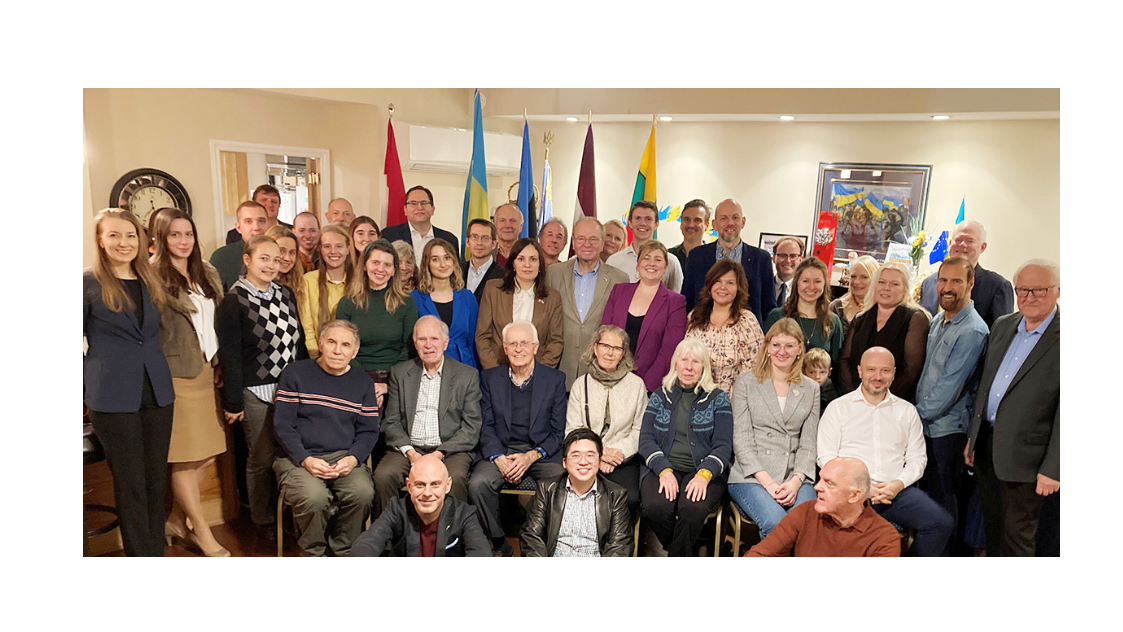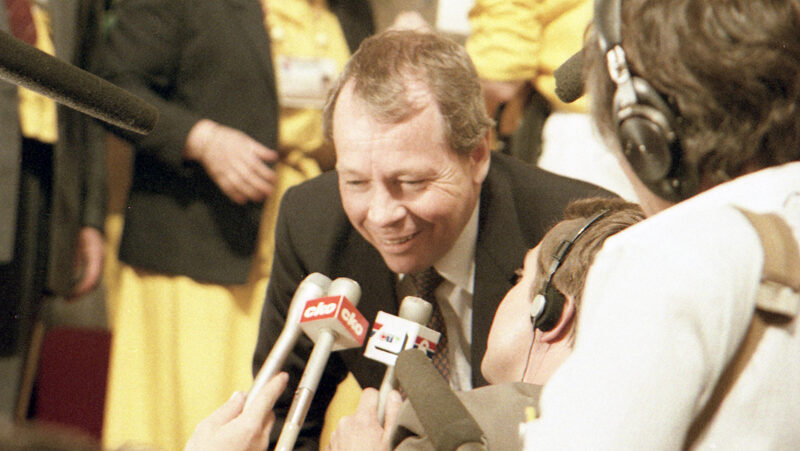How do we create a global information environment that lifts the voices of marginalized ethnic minorities within Russia, empowers them to express themselves freely, and supports their journey toward a future free from Moscow’s exploitation and repression?
This challenge requires the solidarity that conferences like the Post-Russia Forum foster. But it also demands something deeper: an unflinching reckoning with the dark history of Russia’s colonialism—particularly its Soviet-era crimes. Western societies, including Canada, and the Russian people must confront the regime's destruction of cultures and languages, the greedy exploitation of resources, and subjugation of entire nations.
Without accountability, there can be no progress.
The Kremlin knows this, which is why it spends millions annually to whitewash its imperial past, glorifying the colonization of Eastern Europe, the Caucasus, and Central Asia. Nowhere is this propaganda more evident than on May 9th—a day once meant to honor the victory over Nazi Germany. Vladimir Putin has twisted it into a celebration of Soviet-era colonialism, using it to bolster his authority and justify false territorial claims over nations once controlled by Moscow.
How can we hope for the decolonization of Russia if we fail to confront this history ourselves?
Disturbingly, this glorification extends to Canadian soil. In cities like Toronto and Montreal, events organized or funded by the Russian embassy glorify a colonial regime that destroyed cultures and enslaved millions. Even after Russia’s illegal occupation of Crimea in 2014, some Canadian elected officials attended these events.
In 2015, Toronto’s Earl Bales Park hosted an event where flags representing nations subjugated by Moscow adorned the stage. Russian diplomats and Canadian politicians spoke from that platform, minimizing Soviet crimes and erasing the lived experiences of victimized communities.
Today, Kremlin-aligned academics and commentators operate within Canadian universities and media, reshaping narratives to align with Moscow’s revisionist history. This disinformation undermines our understanding of history and indirectly enables the Kremlin’s ongoing aggression and repression of minorities trapped inside Putin’s Russia.
How can we hope for the decolonization of Russia if we fail to confront this history ourselves?
By allowing Moscow to perpetuate falsehoods about its imperial past, we feed its nostalgia for lost glory and embolden its aggression. Addressing Moscow’s colonial crimes with the same rigor as Nazi crimes is not just a moral imperative—it is essential to preventing future wars.
But it’s not too late to act.
1. Document Moscow’s Colonial Exploitation and Confront Those Who Whitewash It
We need a comprehensive record of Moscow’s colonial exploitation. This includes quantifying the financial and human toll of its theft and destruction, cataloging the cultures and languages it has obliterated, and ensuring that this history is widely taught in Western schools to safeguard it against Kremlin manipulation.
We must confront the morally corrupt Kremlin aligned influencers and proxies who distort and manipulate this history. Their narratives marginalize the victims of Soviet-era oppression and recast them as villains. In Canada, such rhetoric denies the lived experiences of ethnic communities, undermining their status as equal citizens and exposes them to being retraumatized.
For instance, on Black Ribbon Day—a day of remembrance for victims of Nazi and Soviet terror—a Canadian writer claimed that remembering the victims of communism meant honoring “our Nazi enemies.” This inflammatory rhetoric is not only false; it is an incitement of hate that marginalizes communities impacted by Soviet terror.
Canada, as one of the world’s most diverse nations, has a moral obligation to lead the effort in documenting Moscow’s crimes and supporting the communities still scarred by its violent repression of ethnic minorities.
2. Pursue Justice and Compensation
Millions of Canadians fled Soviet oppression, leaving behind homes, businesses, and families. Entire communities were destroyed, and families torn apart. Yet these victims and their descendants have received neither justice nor compensation.
The Canadian government should work with its allies to identify and prosecute Soviet-era collaborators responsible for mass crimes and repression.
The forced labor of political prisoners and enslaved individuals in Soviet GULAG camps enriched corrupt Soviet authorities and built the foundations of today’s Russian economy. Yet the historical victims and their descendants have received neither justice nor compensation.
Legal experts in Canada, The United States, Sweden and elsewhere, should explore the potential for domestic and international lawsuits to extract compensation from the Russian government, and from privatized companies that profited from Soviet-era exploitation. Assets of such companies operating in Canada, valued in the billions, could be redirected to compensate victims and their families.
3. Hold Collaborators Accountable
The Canadian government should work with its allies to identify and prosecute Soviet-era collaborators responsible for mass crimes and repression. This includes investigating individuals who served in Soviet state organs responsible for Soviet mass crimes, deportations and repression and who emigrated to Canada or other Western nations after WWII. Where evidence warrants, these collaborators should face deportation or prosecution.
Decolonization Begins with Truth
Confronting Moscow’s colonial crimes and seeking justice for its victims are critical steps toward empowering ethnic minorities to reclaim their voices and shape their futures. Canada has both the opportunity and the responsibility to lead this effort.
With its own history of colonialism, Canada can amplify the voices of those still exploited by Moscow’s neo-imperialists, ensuring that the Kremlin’s legacy is dismantled entirely.
By doing so, we prevent further destruction of cultures and peoples and help build a future where every nation and community—both within and beyond Russia’s borders—can determine its own path.
Decolonization isn’t just about confronting the past. It’s about creating a better, freer future for all. Canada must stand at the forefront of this vital work.



